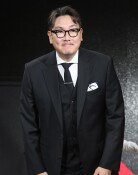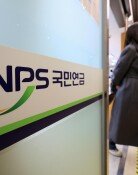[Editorial] Government Enforces Closure of Pressrooms
[Editorial] Government Enforces Closure of Pressrooms
Posted October. 12, 2007 06:48,
Reporters are struggling against the governments suppression of the press in an attempt to safeguard the peoples right to know. The Korean Information Service blocked all cable and wireless Internet lines in the buildings of the six ministries. They delivered an ultimatum to cut off electricity and telephone lines soon and close down the news transmission offices as well. Such violent enforcement of the closure of news transmission rooms, which serve to inform the public of governmental matters in a fast and proper way, is unprecedented in a democratic society.
We are sick of the deception and audacity of the current government which named the suppression of the freedom of speech as the so-called Advanced Media Support System. Despite facing opposition by all presidential hopefuls from each party, this administration, with less than two months left in its term, is displaying a viciousness which is reminiscent of past military dictatorship regimes. Reporters are refusing to move into the consolidated briefing rooms and are boycotting briefings. They are fighting the government by attending to the news transmission rooms every day which are blocked from the outside world. They are determined to write reports even while sitting in the cold corridors. By protecting freedom of speech on their own, they are hoping to block the government from infringing on the peoples right to know.
Cheong Wa Dae said, The government has already compromised and stepped back due to the medias opposition, but we do not understand what the reporters want. Such a claim is only to deceive the public once again. Their plan to control the freedom of speech and peoples right to know, on the grounds of clauses in the press guidelines, is a challenge to the constitution and the sovereignty of the people. The government regards their moves to revise the clauses four times as a compromise; however, it only reveals that they are also aware of the wrongfulness of press control.
The governments intention to put reporters in the closed briefing rooms is clear. By limiting entrance to the ministry buildings, they are technically trying to segregate public servants from the reporters, and wanting reporters to write media reports that suit the governments taste. The Roh administration, which often presents itself as a contributor to Koreas democracy, was compensated more than it deserves. Their actions to close down news transmission offices are no different from withdrawing the government watchdog agency from the front line. Reporters will still be limited from meeting public servants and need extra passes in order to enter ministry buildings.
The top leader who is heading the control policy of the current administration in a de facto manner is President Roh. We need to keep a record of Rohs actions in the history of the Korean democracy, in words such as foes against freedom of speech, the foes against the peoples right to know, and anti democracy and anti public powers. It should be offered as an example to future authorities.





![장마당서 옷 팔던 北처녀, 인사동 개인전 열기까지[주성하의 북에서 온 이웃]](https://dimg.donga.com/c/138/175/90/1/wps/NEWS/IMAGE/2025/12/05/132901507.1.jpg)
![전셋집 보일러 고장 났다면 수리비는 집주인 몫[부동산 빨간펜]](https://dimg.donga.com/c/138/175/90/1/wps/NEWS/IMAGE/2025/12/04/132901947.1.jpg)
